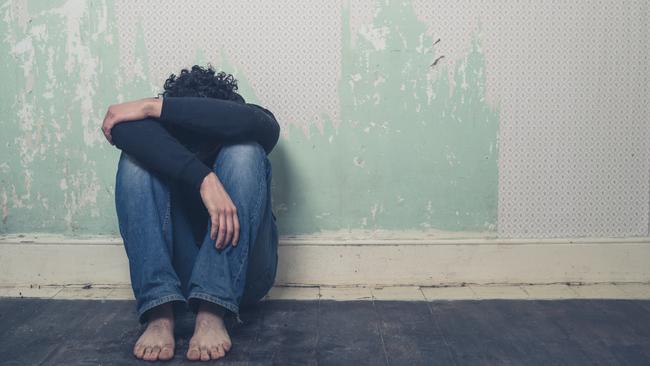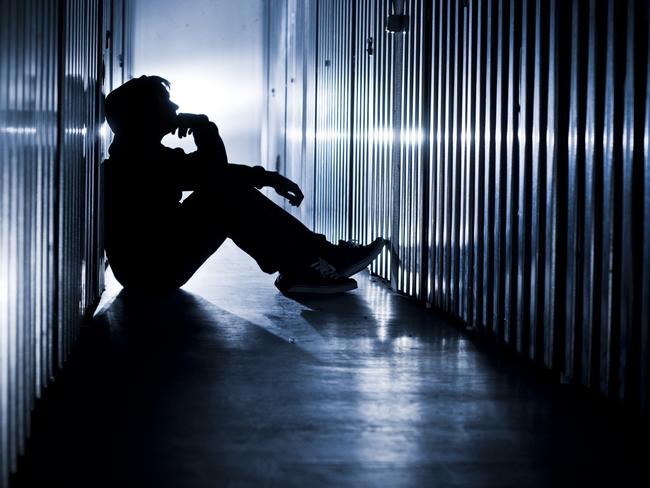Victims tales of Mental Health Tribunal’s indifference to safety
“They’re all about her killer and what he wants. We’re not allowed to say anything.”

NSW
Don't miss out on the headlines from NSW. Followed categories will be added to My News.
EVERY six months Louise (not her real name) waits to find out whether the man who killed her daughter will be set free.
But it’s not a normal court or parole board that gets to decide the fate of her killer. It’s the Mental Health Review Tribunal, a “quasi-judicial” body that is notorious for its secrecy. It’s a system she can only describe as “broken”.
When her 31-year-old daughter was found dead in a townhouse on the Central Coast in July 2012, police told Louise it should be a clean-cut case.
Ella (not her real name) had been stabbed to death with a kitchen knife by her boyfriend of six weeks, who was on an alcoholic binge. He had a history of violence against women and was on bail for assault and breaching an AVO another woman had out against him.
The autopsy revealed stab wounds to the victim’s chest, heart and lungs. The attack had occurred over several minutes. Injuries on her hands and arm showed she’d tried to escape.
But in a twist that still haunts Louise, her killer was found not guilty of murder but manslaughter in 2015 — for mental health reasons.

The tribunal took responsibility for him and he became a forensic patient.
Every six months Louise receives a letter giving her the date of the latest tribunal hearing. Sometimes she is just given a few days to organise the time off work to attend. It’s a gruelling process, but without going she has no way to find out whether her daughter’s killer has a chance of release.
She slammed the tribunal as a “law unto itself”.
Louise asked for her daughter’s photo to be published today so readers could see the beautiful life that was cruelly extinguished. Ironically, the woman and her daughter cannot be identified without permission from the very tribunal they’re criticising.
“It’s disgusting,” Louise says “The community should know when he is released so he can’t do this again ... protecting the community is more important than protecting a killer.
“Very early on when we started having the tribunal hearings we learnt that they weren’t about my daughter.
“They’re all about her killer and what he wants. We’re not allowed to say anything.”
Louise’s husband said he lived in fear of the day his stepdaughter’s killer was released.
Sometimes he says it feels like he can literally hear his wife’s heart breaking.
“There’s something very broken about the system,” he says.
Another woman, whose mother was killed by a forensic patient, said the high level of breaches made her concerned about her family’s killer being released into the community.
“We have no guarantees about how long he’ll stay away. I understand that mental health can make people do evil things, and I’m not questioning that, but community safety needs to be thought of. If he’s released he’ll have no criminal record and no one will know what he’s done.”
Formed in 1990, the tribunal is responsible for all “forensic patients” who have been found “not guilty” of crimes for mental health reasons or individuals who are “unfit to stand trial”.
There are no parole or non-parole periods, meaning a killer or rapist could be released a week after coming under its jurisdict-ion if deemed safe. Under existing laws those found “not guilty for mental health reasons” do not have a criminal record. The Mental Health Tribunal makes it a criminal offence to publish the name of a patient, witness or other person mentioned. Families of victims and former patients cannot discuss their own experiences. The penalty is a one-year jail sentence or an $11,000 fine.
The tribunal also admits its hearings are done with a “patient focus”. It says the public is allowed to attend the hearings but they are “usually held in the place at which a patient is detained”. Bizarrely, it says it does not require “an onus of proof” at these “informal” hearings.
Victims advocate, lawyer Howard Brown says the laws around the tribunal are so complex that most lawyers are not familiar with them.
“ Outside of contesting geographical location of released patients, there’s little opportunity for victims to have a voice and they don’t get to make an impact statement.”
Opposition Mental Health spokeswoman Tania Mihailuk called for “an urgent overhaul of the entire system”.
On the back of The Saturday Telegraph’s investigation, Mental Health Minister Tanya Davies yesterday asked the Ministry of Health to review how the tribunal had been “interpreting the legislation, particularly its obligations to ensure public safety”.
NSW Attorney-General Mark Speakman has also ordered an “urgent briefing” from the Justice Department.
A spokesman for the tribunal said it sought to balance an “individual’s right to liberty” and the “right of the community to safety and protection”.
“In relation to applications for release, the tribunal considers a report by a forensic psychiatrist or other expert who is not involved with the patient’s treatment when deciding whether the release would seriously endanger the patient or the public.”


